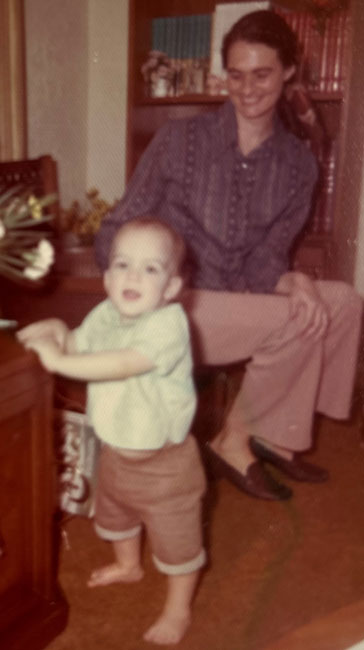A gun, found by a child, can change lives forever in just a few moments. The American Academy of Pediatrics (AAP) reminds families to always store guns safely.
Also, ask other parents if there is an unlocked
gun in the home where their child is going to play. About one-third of homes with kids have guns, many left unlocked or loaded.
Why safe gun storage is so important to keep kids safe
Children are naturally curious. If a gun is accessible in someone's home, there is a good chance a child will find it and play with it. And research shows that even toddlers are strong enough to pull the trigger. Countless tragedies have occurred when kids found guns that parents thought were well hidden or safely stored.
Making sure guns are stored safely is especially important when school is out, and children are spending more time at home. This means
locked and unloaded, with ammunition stored separately. Just talking to your child about the dangers of firearms is not enough.

The Day I Found My 4-year-Old Playing with a Loaded Handgun
By: Marsha Raulerson, MD, FAAP

Children are naturally curious about everything around them. It's an essential part of how they learn but at times leads to danger. Household objects they find fascinating, such as brightly colored detergent packets and flavored refills for e-cigarettes or even buckets of water, for example, can hurt or even kill them.
My curious-to-a-fault son, Aaron, once drank mineral spirits that had turned a pretty color from the paint brush when he was a child. Another time, he climbed to the top of a 20-foot tower. He even ate a roach given to him by his mischievous older sister. At a friend's lake house he got out the door and ran down a dock with me in hot pursuit. I watched in horror as he jumped into 15 feet of water. Thankfully, he came up laughing as a friend lifted him up to me.
But one event is forever etched in my memory. I was in medical school at the time. I came home from class and was looking for my active 4-year-old. I found him sitting on the floor in his grandmother's bedroom playing with a loaded handgun. Somehow, I remained calm and said, "Hand me the gun, please," and he did.
We didn't know that my mother-in-law kept the gun in her bedside table. My husband's father had been a plain-clothes policeman for the Miami police force--one of the original Miami Vice. A few years after his death, my mother-in-law came to live with us. She was a big help when I was in medical school. She didn't know how to shoot the gun and we didn't know she had it. Every time I hear of an unintentional shooting of a child, I have a flashback of Aaron sitting in the floor with that gun.
I recommend to my families to just not have a gun in the house. Research shows that a handgun in a home is more likely to injure or kill a family member than to thwart an intruder. Since Alabama is a hunter's paradise, though, many of my families own more than one hunting rifle. So along with poison prevention and safe sleeping, a common topic is how to safely store those weapons, unloaded in a locked cabinet. I consider my most important role helping parents safely raise healthy, active bright children–even the most curious ones like Aaron.
Marsha Raulerson, MD, FAAP, practices community pediatrics in Brewton, AL. She shared this story on the American Academy of Pediatrics' member blog, "AAP Voices." Pictured above, the author with her toddler son, Aaron, who grew up to have three curious children of his own.
The American Academy of Pediatrics (AAP) remains committed to reducing gun injuries to children. In addition to encouraging safe storage, the AAP
advocates for stronger gun laws, comprehensive access to mental health care, and necessary funding for federal gun violence research and prevention efforts.
More Information